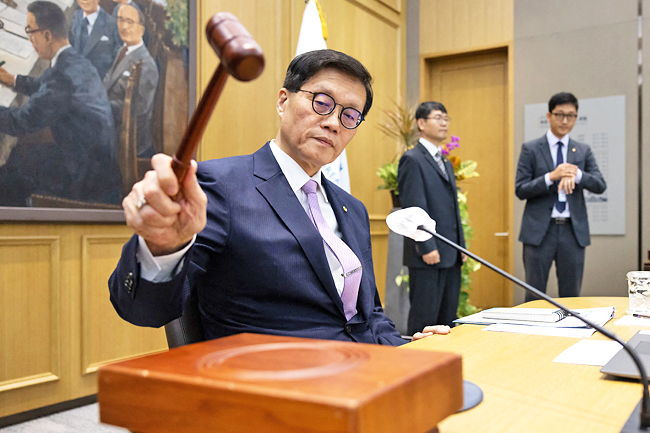SEOUL (AFP) – South Korea’s central bank cut interest rates yesterday for the first time in more than four years, in line with a global shift as headline inflation eases and domestic demand slows.
The Bank of Korea (BOK) lowered the benchmark rate 25 basis points to 3.25 per cent – the first reduction since May 2020, during the pandemic. It began a series of base rate hikes the following year.
The move follows a sharper-than-expected slowdown in consumer inflation for September, when it hit 1.6 per cent – below the BOK’s medium-term target of two per cent and the lowest in three and a half years.
The bank said last month that “the recovery of private consumption, a key sector of domestic demand, is being delayed due to the continued high inflation and high interest rate environment”.
Officials also flagged higher interest rates on household loans as “a factor limiting the improvement in consumption capacity”.
Experts said inflation was unlikely to re-accelerate above the two-per-cent target.
Coupled with Seoul’s moves “to help stabilise housing market and related household loans, the Board likely judged that it can start loosening its grip on monetary policy in order to avoid overtightening domestic economy”, Korea Economist at HSBC Jin Choi told AFP.
“We expect the Board to deliver three additional 25-basis-point cuts over the next three quarters,” Choi said, which would bring the policy rate down to 2.50 per cent and help domestic demand gradually turn around over 2025.
“Though highly uncertain, we see another 25-basis-point policy rate cut in 2026,” he added.




















































